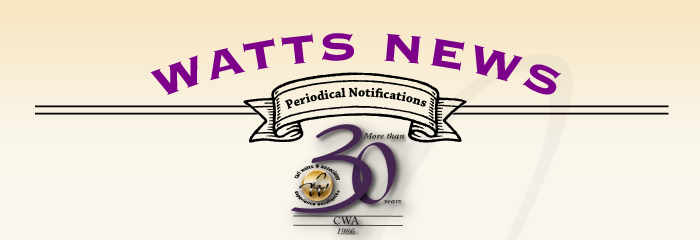|
|
|
|
 |
|
 |
|
|
|
|
|
Troubles viewing this message? View in browser online here
|
|
|
|
|
Owing Taxes
|
|
|
March 23, 2020
|
|
|
|
|
- Installment Agreement — Installment agreements paid by direct deposit from a bank account or payroll deduction from wages will help avoid agreement default by ensuring timely payments and will reduce the burden of mailing payments and save postage costs.
- Delaying Collection — If the IRS determines that a taxpayer is unable to pay, it may delay collection until the taxpayer's financial condition improves.
- Offer in Compromise — Some taxpayers are able to settle their tax bill for less than the amount they owe by submitting an Offer in Compromise (OIC). However, the criteria for accepting an offer are strict and relatively few offers are accepted each year.
|
|
|
When the IRS sends you a bill, if you do not respond to the first notice or subsequent notices, the account becomes delinquent.
Delinquent accounts may be turned over to the Automated Collection System (ACS) or to the Collection field function. ACS personnel will contact you by telephone to attempt to work out an agreeable payment solution. If the delinquent account requires field contact, a revenue officer will try to resolve the account with you.
The worst thing you can do is do nothing at all! Call the phone number on the letter the IRS sent you if you cannot pay your taxes. You will need to give the IRS complete financial information, so make a list of your monthly expenses and income before you call and be prepared to discuss those with the IRS. Make sure you include: medical costs, transportation costs, housing costs, other expenses that you don’t pay every month, extraordinary circumstances (such as life-changing events).
|
|
|
|
|
If you do not contact the IRS, they may take action to collect the liability, such as:
|
|
- Filing a Notice of Federal Tax Lien,
- Serving a Notice of Levy, or
- Offsetting a refund to which you are entitled.
|
|
Even if all these tools are available to you on the IRS website, it is still our advice to contact a tax professional who will be able to give you more specialized advice to enable you to see the light at the end of your financial tunnel once again.
|
|
|
|
|
|
The Treasury Department and IRS are providing relief to all taxpayers who have Federal income tax returns and Federal income tax payments due on April 15, 2020.
The April 15, 2020 deadline is postponed to July 15, 2020. Associated interest, additions to tax, and penalties for late filing or late payment will be suspended until July 15, 2020.
At the same time, the U.S. Treasury Department, IRS, and the U.S. Department of Labor announced that small and midsize employers can begin taking advantage of two new refundable payroll tax credits, designed to immediately and fully reimburse them, dollar-for-dollar, for the cost of providing Coronavirus-related leave to their employees. This relief to employees and small and midsize businesses is provided under the Families First Coronavirus Response Act (Act), signed by President Trump on March 18, 2020.
|
|
|
|
|
| Both announcements were made on March 20 and details will be available in our next Newsletter. |
|
|
|
|
|
Owing money to the IRS is, for most of us, a worrisome thought that could only be surpassed by not affording to pay the tax money due. Still, it doesn’t have to be a traumatizing experience, there are options to consider and solutions to choose from.
|
|
|
|
|
First of all, you should make sure you file your return on time. Not filing a tax return is not a good option at all.
The IRS knows that you owe taxes, they have copies of your W-2s and 1099s whether you file a tax return or not. The difference is that by filing a tax return on time, that is on or before April 15 this year, or during the six months extension after filing Form 4868 requesting an extension of time to file, you acknowledge your obligation and you avoid penalties for not filing your return on time.
If you are not able to pay the tax you owe by your original filing due date, the balance is subject to interest and a monthly late payment penalty. There is also a penalty for failure to file a tax return, so you should file timely even if you cannot pay your balance in full. It is always in your best interest to pay in full as soon as you can to minimize the additional charges.
Let’s see what payments options you have for paying your taxes. Obviously, you can use the old and trusted method of sending a check, but there are other options you may consider.
IRS advises that the electronic payment options, available on their Payments page and the IRS2Go app, are the best way for you to pay federal taxes.
You can make electronic payments online, by phone, or from a mobile device. Paying electronically is safe and secure, and the IRS uses the latest encryption technology.
You can schedule your payment in advance, and you will receive confirmation after it’s submitted. It’s quick, easy, secure, and much faster than mailing in a check or money order.
Electronic payment options are convenient, safe and secure options for paying taxes. Options include:
|
|
- Electronic Federal Tax Payment System (EFTPS),
- Electronic funds withdrawal,
- Debit or credit cards, and
- Federal Tax Collection Service (same day wire transfer). These payment options provide you with ways to make paperless tax payments. So, there’s no check to write, no money order to purchase and no voucher to mail! Take care of it all from home or from wherever you are, 24 hours a day, 7 days a week.
|
|
You can find out more details about these options in Publication 3611, IRS e-file Electronic Payment Options.
Direct Pay is a secure service you can use to pay your current and prior year 1040 series tax returns and more. Pay directly from your checking or savings account at no cost to you. After you complete five steps, you’ll receive instant confirmation that your payment has been submitted. With Direct Pay, you can use the "Look Up a Payment" feature to view your payment status. You can modify or cancel your payment there until two business days before your scheduled payment date.
The IRS also have a payment option for individual taxpayers who need to pay their taxes with cash. In partnership with ACI Worldwide’s OfficialPayments.com and the PayNearMe Company, you can now make a payment without the need of a bank account or credit card at over 7,000 7-Eleven stores nationwide.
If you cannot pay in full, you should pay as much as possible to reduce the accrual of interest on your account.
|
|
You should consider financing the full payment of your tax liability through loans, such as a home equity loan from a financial institution or a credit card. The interest rate and any applicable fees charged by a bank or credit card company are usually lower than the combination of interest and penalties imposed by the Internal Revenue Code.
If you just cannot pay your tax burden, other payment solutions are also available, including: |
|
- Extension of Time to Pay — Taxpayers may be eligible for a short extension of time to pay of up to 120 days. Taxpayers should request an extension if they would be able to pay their taxes in full within the extended timeframe.
|
|
|
|
|
|
|
|
|
|
 |
|
|
|
|
|
|
|
 |
|
|
|
www.carlwatts.com
|
office@carlwatts.com
|
Washington DC
|
Phone: 202 350-9002
|
|
|
|
|
|
|
|
|
|
|
|
|
|
|
|
|
|
|
|
|
|
|
|
|
